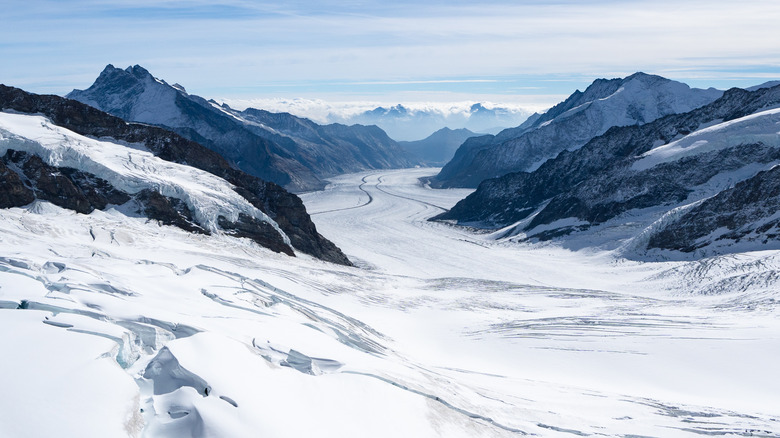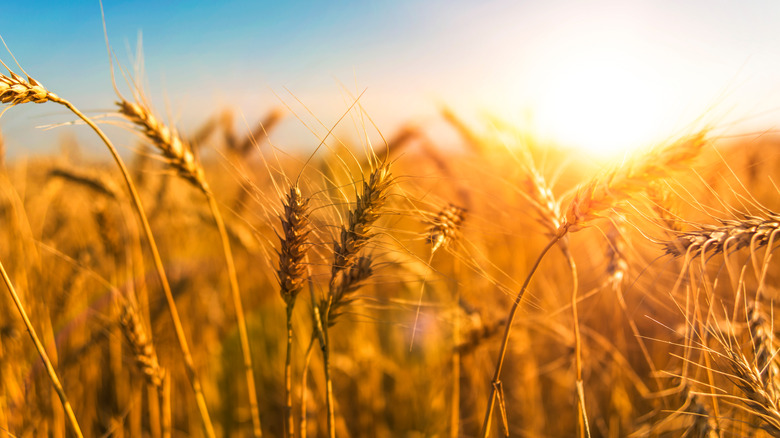The Reason Food Changed Forever After The Ice Age
Life for early humans is largely shrouded in mystery, but it certainly involved a lot of walking. In his book "Cook, Taste, Learn: How the Evolution of Science Changed the Art of Cooking," Harvard-based researcher Guy Crosby explains that early humans lived nomadic lives, following herds of animals they hoped to turn into a meal (via Literary Hub). Each day was largely consumed by travel, leaving no time for scientific, artistic, or culinary innovations.
It had to be so, as those ancient ancestors of ours lived during the Pleistocene era, better known as the last ice age (via LiveScience). Between 2.6 million and 11,700 years ago, most of Earth's water was frozen, many plants went extinct, and giant animals such as mammoths roamed the land. When the world finally began to thaw 12,000 years ago, a wealth of new flora and fauna appeared. What our ancient ancestors' did next changed what we eat, where we live, and even the size of goats.
Agriculture developed after the last ice age
As the ice age glaciers began to recede, food became more and more abundant. Of particular note were a variety of grass species, which included barley and other ancient grains that still feature in our diets. Soon humans learned how to cultivate these plants for themselves, but if they were going to farm the land, they had to establish permanent settlements, and so we got the first villages (via Literary Hub). These communes often shared a communal kitchen where meats, vegetables, and grains were cooked with earth ovens.
It also appears that Homo sapiens caught onto the idea of selective breeding thousands of years ago, choosing only the largest seeds that would produce the highest yield (via Literary Hub). This was also the time that the first domesticated farm animals appeared. At the time, goats were much larger than they are today, but humans selected only the smallest and most docile to breed on farms, who in turn produced smaller offspring, ultimately shrinking most goat species. Astoundingly, domesticated animals may have saved us from having to endure another ice age, according to Science Daily, but only because farming them produces large amounts of greenhouse gasses, and we all know where that led.

